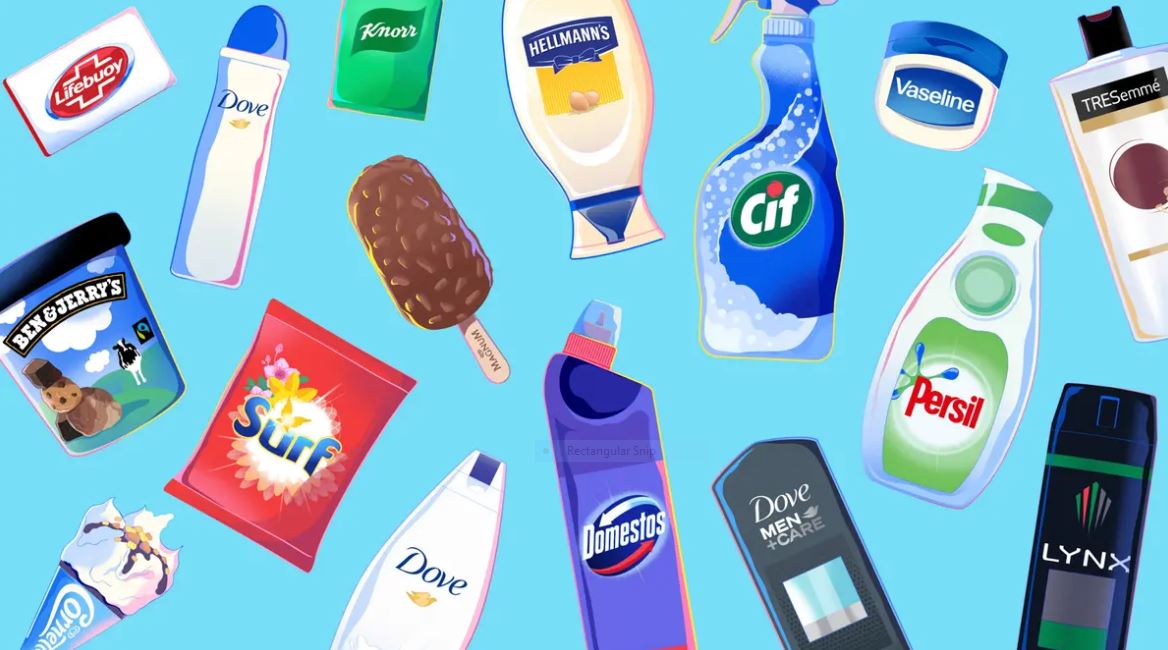During the fourth quarter, Unilever, known for popular brands like Dove soap and Ben & Jerry's ice cream, faced difficulties defending its market share in grocery stores. Unilever encountered fierce competition from private labels, resulting in a decrease in market share across various categories.
Rising Prices and Consumer Shift
In recent years, the food and consumer products industry has faced escalating prices due to soaring input costs triggered by the pandemic and Russia's invasion of Ukraine. Reuters reported that these price hikes have created a cost of living crisis in Europe and the United States, prompting consumers to turn towards cheaper alternatives, such as private label brands owned by major retailers like Carrefour, Tesco, and Walmart.
Unilever experienced significant underlying price growth, with prices reaching a peak of 13.3% in the fourth quarter of 2022. The company's home care business witnessed a nearly 17% price increase, while its ice cream business reported prices approximately 14% higher during that period. However, according to Nielsen data, Unilever's price hikes have eased recently, with a rise of only 5.8% in the third quarter of 2023.
P&G's Impact and Unilever's Market Share Loss
US News noted that P&G, Unilever's main rival in the household and personal care category, recently adjusted its annual profit forecast due to slowing price hikes. Unilever's shrinking market share has been a cause for concern for investors and analysts, who have cautioned about the potential alienation of shoppers. The rise of private-label brands has posed a particular threat and has been a recurring topic of discussion during conference calls.
Unilever experienced a decline in market share across several product categories. In Europe, the company's market share in the ice cream category decreased by 141 basis points, while mayonnaise declined by 374 basis points. Overall, Unilever's European market share suffered a decline of 160 basis points in food and 52 basis points in household and personal goods.
Challenges in the United States Market
In the United States, Unilever faced significant challenges in maintaining market share in its body wash business, including Dove products, witnessing a decline of 510 basis points. Deodorant brands like Axe also fell by 310 basis points. Unilever's household and personal goods segment in the U.S. experienced a decrease of 245 basis points, while the food segment only lost by 20 basis points.
It is important to note that Nielsen data extracted from checkout registers at grocery stores does not capture all retail channels. Additionally, the data does not provide specific information about which companies have gained market share.
Photo: Unilever Newsroom



 Nasdaq Proposes Fast-Track Rule to Accelerate Index Inclusion for Major New Listings
Nasdaq Proposes Fast-Track Rule to Accelerate Index Inclusion for Major New Listings  Sony Q3 Profit Jumps on Gaming and Image Sensors, Full-Year Outlook Raised
Sony Q3 Profit Jumps on Gaming and Image Sensors, Full-Year Outlook Raised  Nvidia, ByteDance, and the U.S.-China AI Chip Standoff Over H200 Exports
Nvidia, ByteDance, and the U.S.-China AI Chip Standoff Over H200 Exports  SpaceX Prioritizes Moon Mission Before Mars as Starship Development Accelerates
SpaceX Prioritizes Moon Mission Before Mars as Starship Development Accelerates  Instagram Outage Disrupts Thousands of U.S. Users
Instagram Outage Disrupts Thousands of U.S. Users  Hims & Hers Halts Compounded Semaglutide Pill After FDA Warning
Hims & Hers Halts Compounded Semaglutide Pill After FDA Warning  Tencent Shares Slide After WeChat Restricts YuanBao AI Promotional Links
Tencent Shares Slide After WeChat Restricts YuanBao AI Promotional Links  Global PC Makers Eye Chinese Memory Chip Suppliers Amid Ongoing Supply Crunch
Global PC Makers Eye Chinese Memory Chip Suppliers Amid Ongoing Supply Crunch  TSMC Eyes 3nm Chip Production in Japan with $17 Billion Kumamoto Investment
TSMC Eyes 3nm Chip Production in Japan with $17 Billion Kumamoto Investment  Alphabet’s Massive AI Spending Surge Signals Confidence in Google’s Growth Engine
Alphabet’s Massive AI Spending Surge Signals Confidence in Google’s Growth Engine  Rio Tinto Shares Hit Record High After Ending Glencore Merger Talks
Rio Tinto Shares Hit Record High After Ending Glencore Merger Talks  Trump Backs Nexstar–Tegna Merger Amid Shifting U.S. Media Landscape
Trump Backs Nexstar–Tegna Merger Amid Shifting U.S. Media Landscape  SpaceX Pushes for Early Stock Index Inclusion Ahead of Potential Record-Breaking IPO
SpaceX Pushes for Early Stock Index Inclusion Ahead of Potential Record-Breaking IPO  Toyota’s Surprise CEO Change Signals Strategic Shift Amid Global Auto Turmoil
Toyota’s Surprise CEO Change Signals Strategic Shift Amid Global Auto Turmoil  Amazon Stock Rebounds After Earnings as $200B Capex Plan Sparks AI Spending Debate
Amazon Stock Rebounds After Earnings as $200B Capex Plan Sparks AI Spending Debate  Washington Post Publisher Will Lewis Steps Down After Layoffs
Washington Post Publisher Will Lewis Steps Down After Layoffs  American Airlines CEO to Meet Pilots Union Amid Storm Response and Financial Concerns
American Airlines CEO to Meet Pilots Union Amid Storm Response and Financial Concerns 































